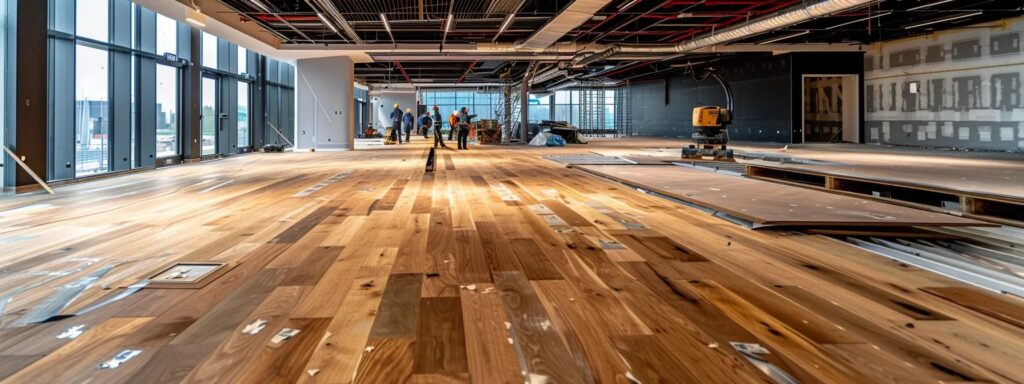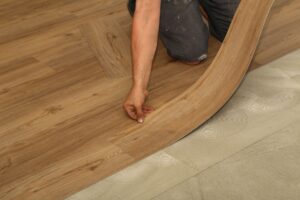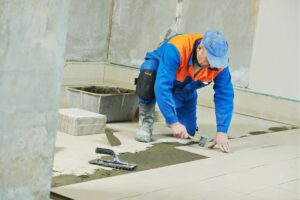Looking for floor installation near you? Whether you’re upgrading your home or remodeling a business space, working with local experts makes the process easier and more reliable.
In places like Marietta and Metro Atlanta, knowing what to expect helps you plan better and avoid surprises. This guide walks you through every step—starting with the first consultation, all the way through installation, finishing touches, and post-install care.
You’ll also learn about local building codes, flooring types, and financing options to help you make smart, informed decisions.
How Do Local Flooring Installation Services Work?
When you hire a local flooring installer, you get more than just labor—you get hands-on planning and personalized service. It all starts with a consultation. They’ll visit your space, take accurate measurements, and learn about your style and material preferences.
From there, they’ll map out the full plan: delivery dates, labor schedule, and checkpoints to keep the project on track. If they spot issues like moisture or uneven subfloors, they’ll handle them fast. This step-by-step approach helps keep your project on budget and on time.
What Are the Key Steps in the Flooring Installation Process?
The process begins with a full walkthrough and measurements. The installer will check for issues like cracks, dips, or moisture and suggest any fixes needed.
Next, they’ll remove the old flooring and clean the area. If needed, they’ll install underlayment to help with insulation or sound control. Then, the new flooring—whether it’s hardwood, tile, vinyl, or carpet—is carefully installed.
Finally, they’ll seal, buff, or grout the surface and add trim or baseboards to complete the look. Every step is done with care to make sure your floor looks great and lasts.
How Do Local Experts Prepare Your Home for Installation?
Prep work is key to a great result. Before anything goes down, your installer will check the subfloor to make sure it’s clean, level, and dry.
They’ll remove debris, fix any problem areas, and test for moisture. If needed, they’ll add underlayment to help with comfort, noise, or glue adhesion. This prep keeps the mess down and protects your home while setting the stage for a smooth install.
What Finishing Touches Do Professionals Provide?
After the floor is installed, pros handle the details that take it from good to great. They’ll seal or buff the surface, install baseboards to hide edges, and clean up the space.
For tile, that might mean careful grouting. For carpet, it’s a deep vacuum and stretch. They may also walk you through simple care tips so your floor stays in top shape for years.
Which Flooring Types Can Local Experts Install Near You?
Local pros can install just about any type of flooring. Whether you’re going for style, comfort, or durability, they’ve got you covered.
- Hardwood adds timeless beauty and lasts for years.
- Laminate gives you a wood look at a lower price.
- Vinyl and tile work great in kitchens and bathrooms thanks to their water resistance.
- Carpet adds warmth and quiet, especially in bedrooms or living rooms.
Local experts will help match the right material to your needs, style, and budget—so your floors not only look good but also perform well in your space.
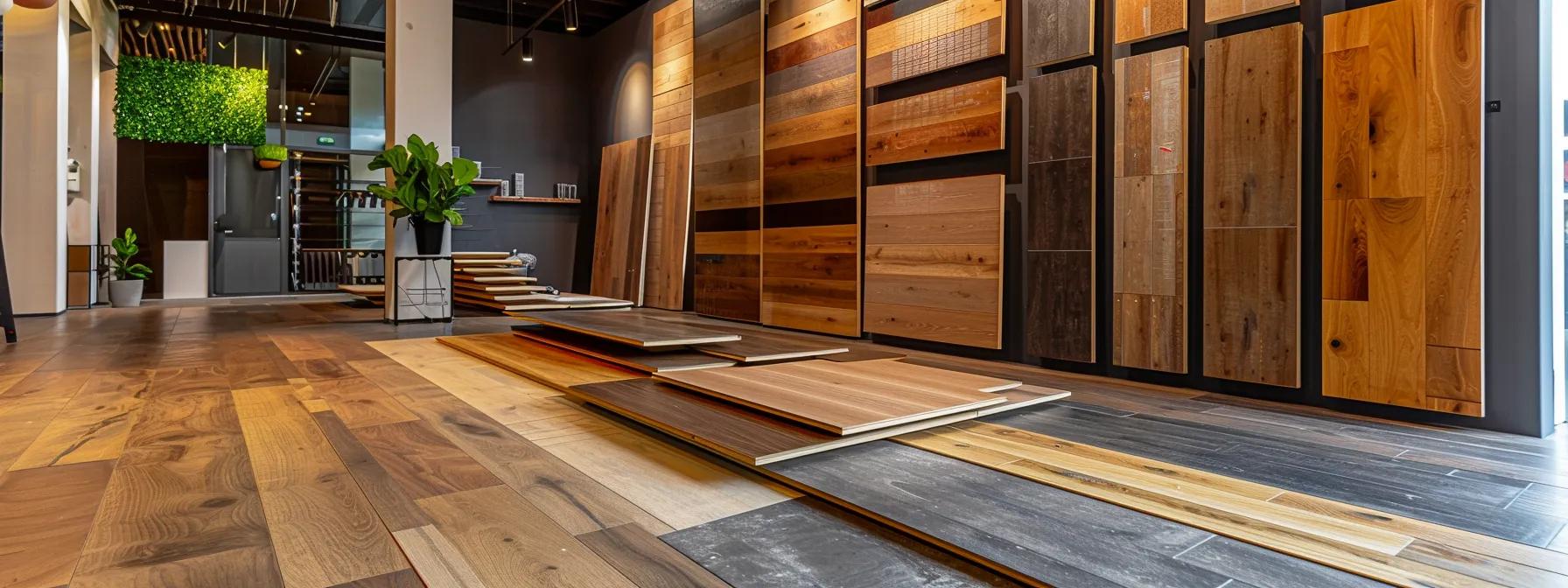
What Are the Benefits of Hardwood, Laminate, Vinyl, Tile, and Carpet Flooring?
Each flooring type has its own strengths:
- Hardwood: Classic, durable, and can be refinished when needed
- Laminate: Budget-friendly and easy to maintain
- Vinyl: Water-resistant and versatile for any room
- Tile: Tough, eco-friendly, and simple to clean
- Carpet: Soft, cozy, and helps with insulation and noise
The best choice depends on how the room is used, how much traffic it gets, and the overall feel you want.
How Do Installation Methods Differ by Flooring Type?
Different floors need different installation methods:
- Hardwood is nailed, stapled, or glued down.
- Laminate usually floats—meaning the planks click together without glue.
- Vinyl can be glued or use a click-lock system.
- Tile needs mortar and grout for a tight seal.
- Carpet gets stretched and stitched into place by a pro.
No matter the method, proper subfloor prep is key for a solid, long-lasting finish.
Which Flooring Materials Are Best for Different Rooms?
Here’s a quick guide to what works where:
- Living rooms and bedrooms: Hardwood for elegance or carpet for comfort
- Kitchens and bathrooms: Vinyl or tile for water resistance
- Commercial spaces: Laminate or luxury vinyl for durability
- Offices: Carpet tiles for noise control, with hardwood for a polished look
Your installer will consider traffic, moisture, and style to help you choose the best fit for each room.
How Much Does Flooring Installation Cost Near You?
Flooring costs can vary based on a few things—like the material you choose, the size of the room, subfloor condition, and local labor rates. Most quotes will show the cost per square foot for the flooring itself. But don’t forget the extras—underlayment, adhesives, and finishing work all add to the total.
If you want custom patterns or features like heated floors, that’ll increase the price too. It’s a good idea to get a few detailed estimates so you can compare prices fairly. Paying a bit more for quality materials and expert installation now can save you money on repairs later.
What Factors Influence Flooring Installation Prices?
Here’s what affects the final cost:
- Material quality – Premium hardwood or custom tile costs more than basic options
- Room size and subfloor condition – Bigger spaces may cost less per square foot, but bad subfloors can add to prep costs
- Labor rates – Prices in Metro Atlanta tend to be a bit higher
- Project details – Complex layouts or designs take more time and skill
Clear, itemized estimates help you understand where your money’s going and make budgeting easier.
How Does Professional Installation Compare to DIY Costs?
DIY might look cheaper at first—but mistakes can cost you more later. Professional installers bring the tools, skills, and know-how to do the job right. They also follow local codes and often include warranties for extra peace of mind.
In the long run, pros deliver better results, fewer problems, and less stress—making the higher upfront cost worth it.
Are There Financing or Warranty Options Available?
Yes—many local flooring companies offer financing plans to make things more affordable. You can also expect warranties on both the materials and the labor.
Warranty terms vary, so be sure to read the details. Having that coverage means you’re protected if something goes wrong later—and that makes your investment a lot safer.
Why Should You Hire Local Flooring Installation Experts?
Hiring local flooring pros comes with big advantages. They know the area’s building codes, climate, and common subfloor issues—especially in Metro Atlanta and nearby communities.
They’ll recommend materials that work well in Georgia’s humidity, like moisture-resistant tile or flexible hardwood. Local installers also offer faster service, better support, and a more personalized experience.
Plus, they’ve built their reputation in your community, so you know they’re motivated to do the job right.
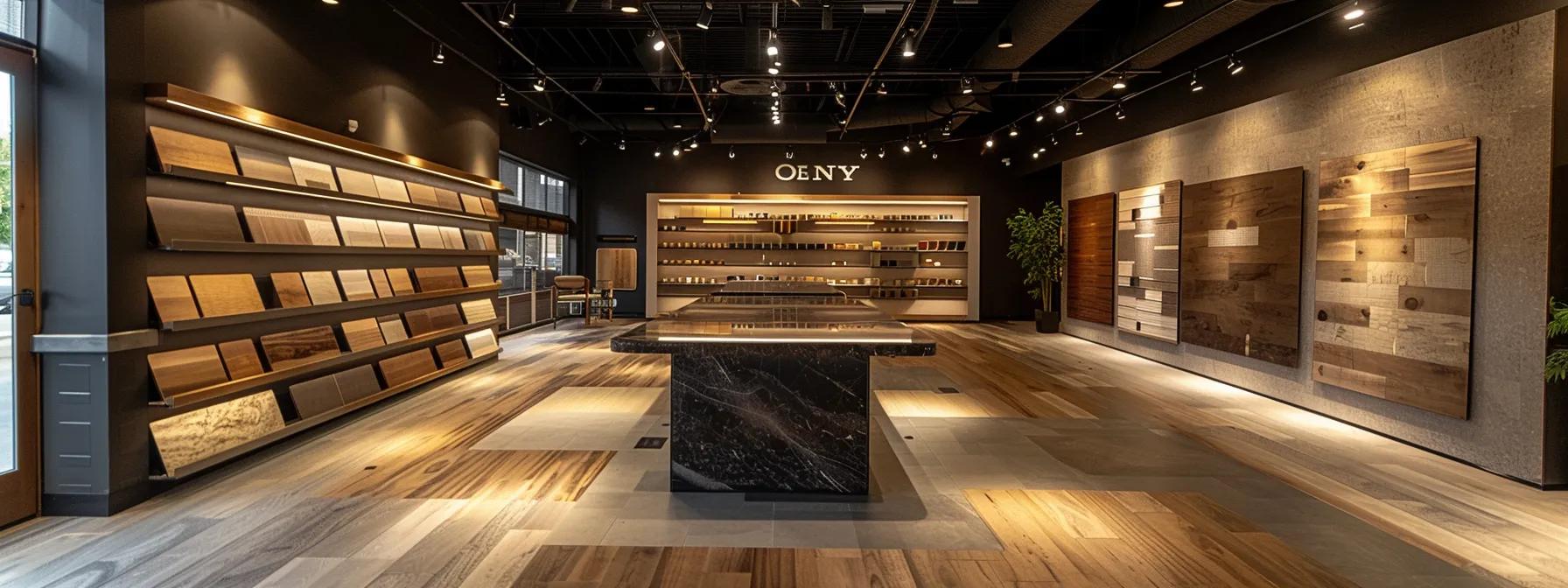
What Are the Advantages of Hiring Local Installers?
Here’s why local pros are a smart choice:
- Easier to reach for scheduling and support
- Faster turnaround and response times
- Tailored advice based on your home and goals
- Warranties backed by their solid local reputation
- Support for your local economy and future service needs
With local help, you’re more likely to avoid delays and installation mistakes—and enjoy a smoother, stress-free project.
How Can You Verify the Reputation of Local Flooring Professionals?
To find someone you can trust, check reviews on sites like Yelp or HomeAdvisor. You can also ask friends or neighbors who they’ve worked with.
Make sure the installer is licensed and insured. Ask for photos of recent work, and during the consultation, talk openly about pricing, timelines, and what to expect. Honest answers are a good sign you’ve found the right fit.
What Customer Support and Warranty Services Do Local Experts Offer?
A good local installer won’t disappear after the job’s done. Many offer ongoing support—like scheduled maintenance, quick repairs, or advice on cleaning and care.
You’ll also find extended warranties for both the flooring and the installation. That means fewer worries down the road and a team you can count on if anything comes up.
How to Choose the Best Local Flooring Installation Service
Finding the right flooring installer takes a little research. Start by looking for well-reviewed companies in Marietta and Metro Atlanta. Check that they’re licensed, insured, and experienced with the type of flooring you want.
Get a few quotes and compare them carefully. Look for clear breakdowns of costs, timelines, and services. During your first conversation, pay attention to how they communicate. A contractor who’s open, honest, and easy to work with is usually a good bet.
What Questions Should You Ask Potential Flooring Installers?
Here are a few important questions to ask:
- Have you done similar projects before?
- What flooring materials do you recommend for my space?
- Can you give me a detailed quote and timeline?
- Do you offer warranties or post-install support?
- Can I see photos or reviews from past clients?
These questions help you spot experienced, reliable pros.
How Do Reviews and Testimonials Influence Your Choice?
Online reviews and client testimonials give you a real look at a contractor’s track record. They can highlight great service—or flag issues to watch for. Look for consistent comments about quality, communication, and reliability. They’re a great way to make a confident decision.
What Should You Expect During the Initial Consultation?
The first meeting is your chance to get the full picture. Your contractor should visit your home, take accurate measurements, and talk through your goals and budget.
They should also explain the process step-by-step, give you a clear cost breakdown, and recommend flooring types that fit your space. This is also the time to ask about timelines, warranties, and next steps.
What Are the Local Building Codes and Regulations Affecting Flooring Installation?
Local building codes help make sure your flooring is safe, durable, and built to last. They cover things like subfloor prep, insulation, and moisture barriers. Following these rules is important—not just to avoid fines, but to make sure your floor holds up over time and passes inspection if needed.

How Do Local Climate and Building Codes Impact Flooring Choices?
In places like Georgia, climate plays a big role in flooring decisions. Humidity and moisture can lead to warping or mold, especially with the wrong materials. That’s why vinyl or tile—both water-resistant options—are often recommended for bathrooms or basements.
Building codes may also require special underlayment or vapor barriers. A local pro will know exactly what works best for your home and how to stay within code.
What Permits or Inspections Might Be Required?
Some flooring projects—especially ones that involve major changes—need permits. After the work is done, an inspection might be required to check that everything meets local standards.
A good contractor will walk you through the permit process and take care of the paperwork. They’ll also coordinate with inspectors so you don’t have to stress about it.
How Do Local Experts Ensure Code Compliance?
Local installers stay current on building regulations and know what’s required for different types of flooring. They’ll plan ahead, schedule inspections when needed, and make sure the work is done right.
This kind of attention to detail helps you avoid delays, meet code, and get a floor that’s both beautiful and built to last.
How Can You Maintain and Care for Your Newly Installed Flooring?
Taking care of your new floors helps them last longer and look great. Right after installation, start a simple maintenance routine. That means regular cleaning, quick cleanup of spills, and occasional checkups for damage.
Each flooring type has its own care needs. Hardwood floors do best with stable humidity and occasional refinishing. Tile and vinyl need pH-balanced cleaners to avoid buildup. Carpet should be vacuumed often and deep cleaned to remove dirt and allergens.
Always follow the care tips your installer or manufacturer provides. It’s the best way to keep your floors in top shape.
What Are the Best Maintenance Practices for Different Flooring Types?
Here’s a quick breakdown of what each flooring type needs:
- Hardwood: Sweep often, mop lightly with wood-safe cleaners, and refinish every few years
- Laminate: Dry dust and avoid too much water
- Vinyl & Tile: Use gentle, pH-balanced cleaners and deep clean as needed
- Carpet: Vacuum regularly and get it professionally cleaned once a year (or more, if needed)
How Often Should You Schedule Professional Maintenance or Repairs?
The right schedule depends on your flooring and how much traffic it gets:
- Hardwood: Have it inspected and possibly refinished every 3–5 years
- Vinyl & Tile: Deep clean once or twice a year
- Carpet: Plan for deep cleaning every 12–18 months
What Common Issues Should You Watch for After Installation?
Keep an eye out for:
- Water damage
- Uneven spots or loose planks
- Gaps between tiles or boards
- Grout cracking or wearing down
- Carpet stains or thinning
These signs can show up slowly, especially in high-traffic areas or homes with moisture problems. Catching them early keeps your floor looking good and holding strong.
Table: Comparison of Flooring Materials and Their Key Attributes
Before reviewing the FAQs, consider this table summarizing common flooring options:
| Flooring Material | Performance | Durability | Typical Cost (per sq. ft.) | Maintenance Requirement |
|---|---|---|---|---|
| Hardwood | High | Very High | $7–$12 | Annual refinishing and regular cleaning |
| Laminate | Moderate | High | $2–$5 | Dusting and occasional mopping |
| Vinyl | High | Moderate | $2–$7 | Regular wiping with pH-balanced cleaners |
| Tile | High | Very High | $5–$15 | Periodic deep cleaning and grout maintenance |
| Carpet | Moderate | Moderate | $3–$8 | Frequent vacuuming and annual deep cleaning |
This comparison helps determine which material fits your needs based on usage patterns, budget, and maintenance expectations.
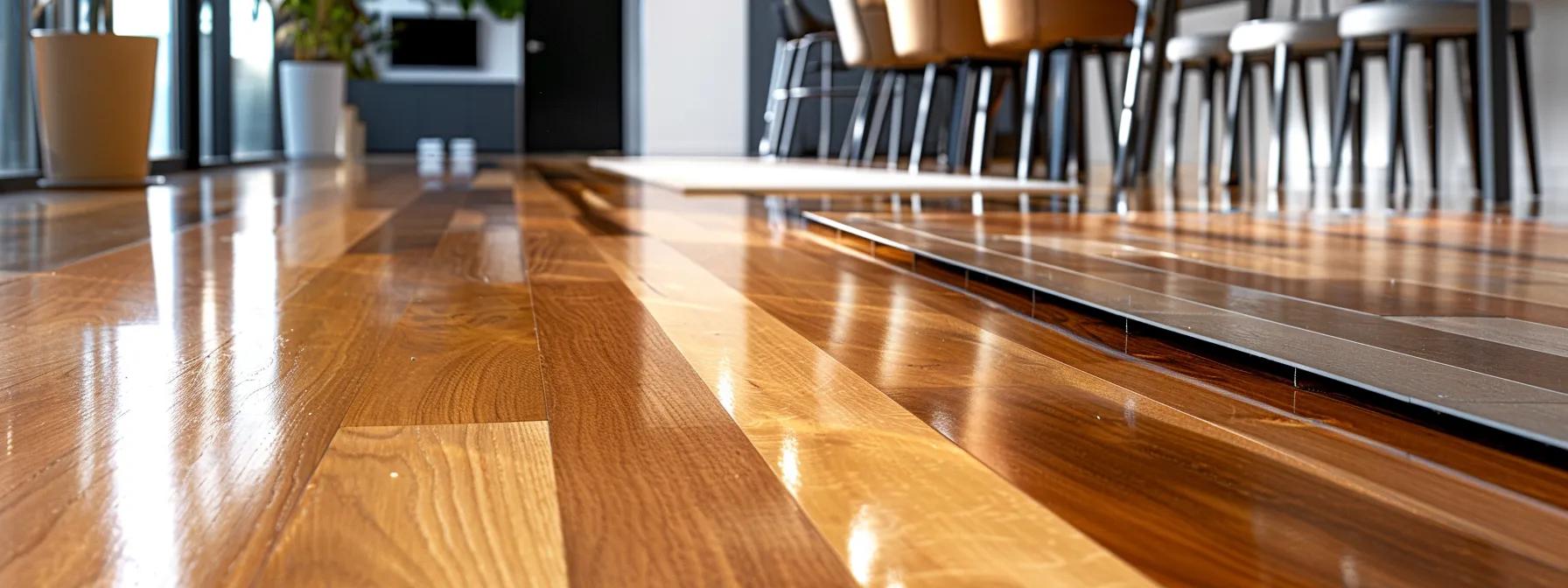
Frequently Asked Questions
Q: What should I look for when hiring a local flooring installer?
A: Look for licensed, insured pros with solid local experience and good reviews. Ask for detailed quotes, check if they offer warranties, and make sure they understand local building codes. A clear, honest conversation up front is a good sign you’re hiring the right team.
Q: How can I estimate the cost of my flooring installation project?
A: Start by figuring out the room size and type of flooring you want. Then, get multiple quotes that include materials, labor, and extras like underlayment or prep work. A detailed estimate helps you plan your budget more accurately.
Q: What are the benefits of hiring a local flooring expert instead of a DIY approach?
A: Local pros know the area’s codes and conditions, and they bring the tools and skills to do the job right. You’ll avoid mistakes and often get a warranty—something DIY projects don’t usually come with.
Q: How often should I have my flooring professionally maintained?
A: This depends on the type of flooring. Hardwood may need professional refinishing every 3–5 years, while tile and vinyl should be cleaned professionally once or twice a year. Carpets typically benefit from deep cleanings every 12–18 months.
Q: Are financing or warranty options available with local flooring installations?
A: Yes. Many local companies offer financing plans and warranties that cover both the flooring and the installation. Just be sure to read the terms so you know what’s included and for how long.
Count on Abel Pro Flooring—Your Trusted Partner for Flooring Installation in Georgia
Finding the right team for your flooring project doesn’t have to be complicated. From helping you choose the best materials to handling every step of the install, local pros bring the knowledge, care, and precision that make all the difference.
At home, we combine expert craftsmanship with personalized service to deliver floors that are built to last. Whether you’re planning a cozy upgrade or a full remodel, our team has the tools, experience, and local insight to do it right—from start to finish.
Looking for the best flooring contractor in Georgia? Get in touch with Abel Pro Flooring for a free quote. Let’s bring your vision to life with beautiful, durable floors that feel just right for your home or business.

